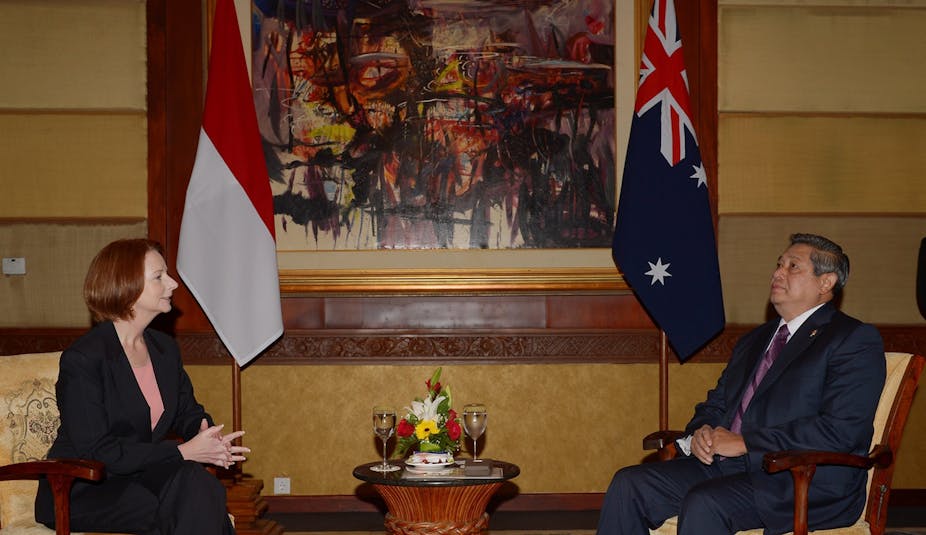The dust has settled on the Asian Century White Paper. It is time to reflect on the challenges the Australian government might have in getting the rest of the country to engage with Asia, in particular Indonesia. Australia has had an accidental Asian focus over the past few years.
First the pull through effect of the high growth Chinese economy on Australia’s coal and iron ore mining industries. Also the Japanese gas supply project in the north of Australia is at the beginning of the construction phase.
The relationship with China and Japan has two stages. First, investment and construction and second is long-term commodity supply. In the case of China, we are shifting out of the investment stage and into the supply stage.
This becomes the economically challenging period when Australia has the facilities and needs China to keep using them. The threat China could find other suppliers would mean Australia is left with large mining and port infrastructure without a market. Supply diplomacy will be a big issue over the next few decades. Our policy of not allowing Chinese firms to “lock into” Australia with some ownership might come back to bite.
The trade opportunities that exist in Indonesia are less clear than in the case of China and Japan. Indonesia is relatively resource rich, and therefore unlikely to depend on Australia for whatever Australian companies can dig up. The relationship will be based on bilateral trade.
Perhaps it could lead to a more predictable long-term political relationship. This raises the critical issue for the Australian Asian century plan, suggested in one story published in Jakarta recently that: “with Australia, old habits die hard. Australia also has a track record of falling over itself in Asia”.
Australia businesses need to engage with Indonesia. Prime Minister Gillard has called for this at the release of the white paper. The truth is many Australian firms, even the very biggest, have overt or covert “do not buy Indonesian” policies effectively shutting the doors hard against Indonesian firms putting a business case. Long-term campaigns by environmental NGOs and media stories about animal slaughter only add the rhetoric.
Another story in Jakarta last week acknowledges Australia’s difficulty in liking Indonesia because of the difficult historical events that have gone on between the two nations such as the Bali bombing and embassy attacks in Jakarta.
Many Australians tend to take a one-way view of these issues and not understanding the deeper detail. The point is to truly engage with Indonesia it needs commitment to action from the Australian business sector, without business it’s just a bit of very white paper.
Australia society has been intolerant of Indonesia for many years, despite such positive and supportive beginnings following World War 2. Indonesia is a nation new to democracy after 50 years of dictatorships following 350 years of brutal colonial rule by the Dutch who left it with almost no government institutions and processes. The nation has come out of a financial crisis a decade ago that all but completely destroyed the nation. Now Indonesia is a key actor on the world stage and a Mecca for international political leaders such is the nation’s strategic importance.
At a political level Australia has tried hard — Prime Minister Gillard is not the first national leader to want to charge into an Indonesian-Australian relationship. Paul Keating’s first overseas trip as Prime Minister was to Jakarta - his focus on Asia was legendary - but amounted to little perhaps because of the anchor formed by Australian business.
The key for the Gillard government to bring business along with them, otherwise this most recent Asian statement will wither on the vine along with the past attempts. Australian businesses need to understand that Indonesians are different to Australians in both their society and history for many reasons.
Perhaps it’s time to ask what is wrong with us, rather than what is wrong with them?

